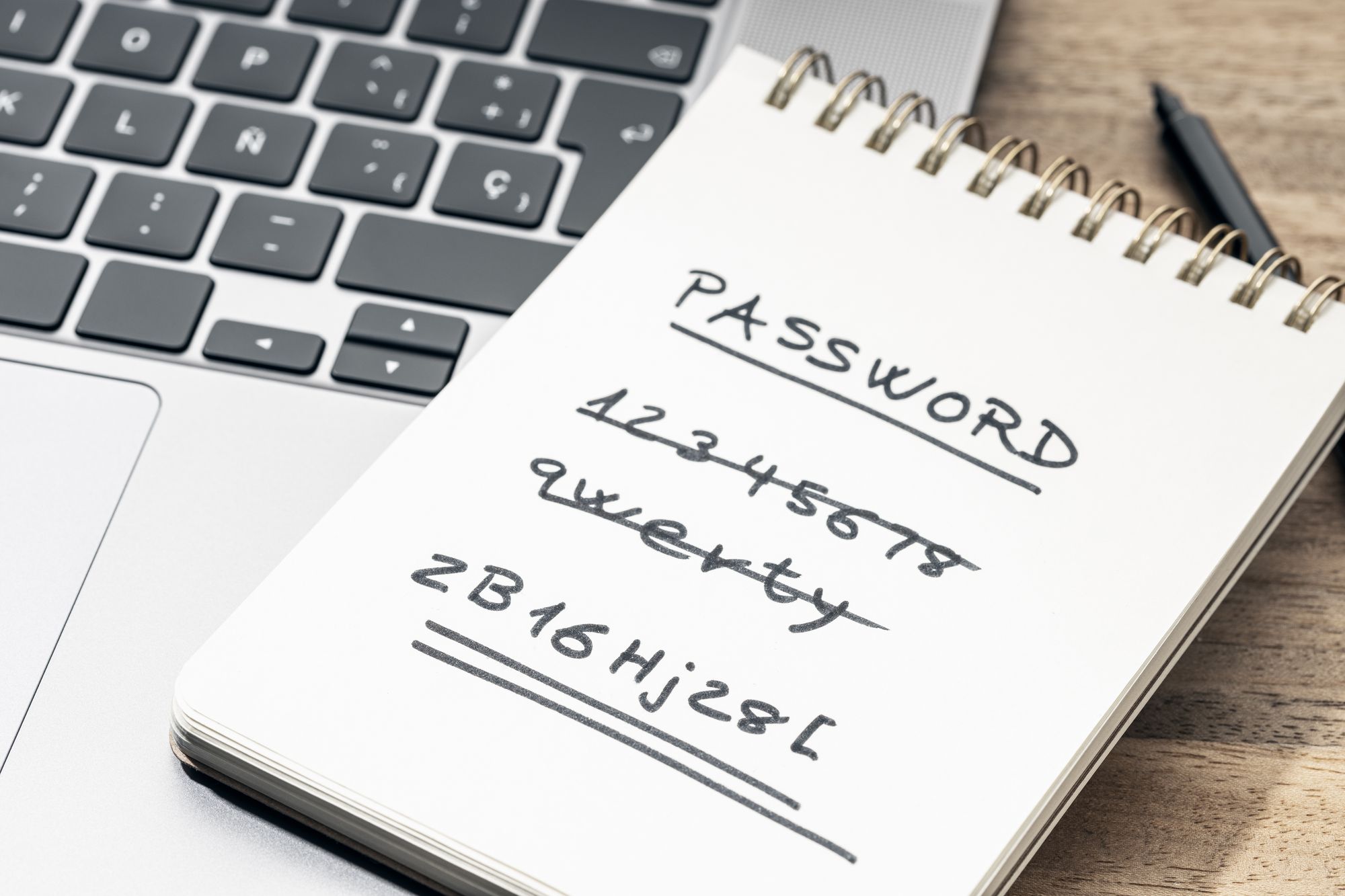
Learn How to Write a Strong Password With These Tips!
What is the key to a good password versus a weak password? Learn tips for writing a strong password and other password security advice.
We use passwords for seemingly countless things in the digital age. Bank accounts, social media profiles, streaming platforms, online shopping sites. The list goes on and on. Every time you create a new account or profile, you're prompted to “Please create a new password.”
You’ll likely be provided with a series of necessary elements to include in your password – numbers, letters, upper-case letters vs. lower-case, special symbols, etc – along with a minimum character count. Figuring out how to tick off all of these requirements into a password you can actually remember may feel like a feat.
But, does simply abiding by their password requirements actually guarantee you’ve created a strong and hopefully hack-proof password? Plus, with so many different usernames and passwords, can you really never use the same password for multiple accounts?
We’re breaking down the keys to writing a strong password, plus reviewing some additional tips to avoid cybercriminals. For example, using a public records service like Intelius could help you avoid scammers, phishing, or other online threats.
Avoid The Obvious
Steer clear of passwords that include any details that could easily be found on the internet or guessed by chance.
Don’t Include Your Birthday, Address, or Name
Sure your birthday plus your favorite pet’s name and home address would be easy to remember. But, it would also be an easy password for a hacker to crack.
Don’t use sequential numbers or letters
Avoid any characters that fall in sequence on the keyboard – like “qwerty”. Also avoid using numerical sequences– “4567”– or sequential letters from the alphabet– “abcd”.
Don’t use a standard or basic phrase.
Password123 does not cut it. Neither does Money123 for your bank password. These passwords can easily be guessed by both a robot or human and leave whatever information is housed within your account vulnerable.
Combine Letters, Numbers and Symbols
The more character variety your password has, the harder it will likely be to crack. Most high-risk accounts – such as bank profiles or medical dashboards – will have some requirements for numbers, symbols, etc. Be sure to create a unique combination of uppercase and lowercase letters, numbers, and special symbols. Try to avoid common word combinations – such as “peanut butter and jelly.” If possible avoid using words or phrases altogether and instead craft a password made up of random symbols, numbers, and letters.
The Longer the Better
Most passwords are required to be around eight characters or more. However, don’t be afraid to go beyond this. In fact, a longer password is –with the unique combination of letters and symbols – is much harder to guess as the potential variety of combinations is greater.
Password Management Tips
Writing a strong password isn’t the only key to avoiding getting hacked. Follow these additional tips to help make sure your passwords – and information– stays secure.
Don’t Share Your Passwords
This one is fairly obvious. Do not share your passwords with anyone unless you want them to have access to your information or it is a shared account– i.e. you and your spouse share a bank account.
Don’t Reuse Passwords
Don’t use the same password across multiple platforms, accounts, etc. Even if you have crafted a very secure password, if it does happen to get hacked you don’t want this to compromise your information across multiple platforms.
Use a Password Manager
A strong password isn't always a memorable password. You'll likely need to write your passwords down somewhere in order to keep track of them. Don’t store your passwords on a single note or file on your phone or computer. If you accidentally give a cybercriminal access to your desktop, they could have access to all your accounts and the information stored within them. Instead, use a password manager tool. Often your company IT will recommend a password manager solution. Otherwise, there are a variety of tools such as Keeper, Dashlane, or LastPass.
How to Avoid Cybercriminals
So how do passwords get hacked? It usually isn’t some genius hacker in a dark room guessing all the possible combinations to get into a single person’s bank account. Often, passwords are leaked when an entire company falls victim to a cyber-attack– such as a credit card company – compromising all their consumers' information. This is why it is important that you use different passwords for each of your online accounts. I
An additional way a cybercriminal may hack you is through phishing. Phishing is when scammers pretend to be a reputable company or individual to attempt to trick their victims into revealing sensitive information. The most common channel scammers use for phishing email. However, they may also attempt to contact their victims via a phone call.
If you are suspicious about an email you received or a phone call, try looking up the sender or phone number by signing up for Intelius. An Intelius Background Check Report or Reverse Phone Number Lookup Report may help provide details that help you determine whether or not the person trying to contact you is legitimate or a potential scammer.
Hopefully, these tips will help you better understand the anatomy of a strong password and keep your information safe!